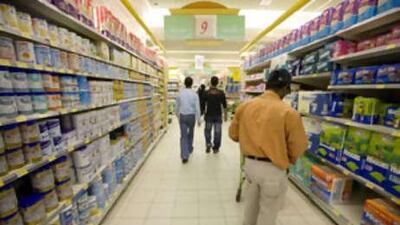Food shops throughout Abu Dhabi are to post regular price-check bulletins as part of plans by the Government to monitor price trends for essential commodities and help shoppers keep track of the cost of a basket of everyday goods, including bread, cereals, meat, fish, dairy products, cooking oil and fruits and vegetables. The Department of Planning and Economy (DPE) said yesterday that its commodity prices index was "a vital project that would help create a positive and competitive climate for prices in Abu Dhabi emirate". Begun a few years ago as a six-monthly review of some consumer items and building materials to assist economic planning, the index was being broadened to take into account prices of all major stores and would be published for the benefit of consumers - along with explanations for any increases. "Justifications for any changes in the prices will also be featured in conjunction with the consumer protection unit at the department," said the DPE in a statement released through the state news agency WAM. The index will be based on a survey of family income and spending carried out last year by the statistics unit of the DPE. It identified 53 key items and found food, beverages and tobacco accounted for almost 15 per cent of family spending. The bulletin was to be published monthly at first, then weekly, and would be available at most stores in Abu Dhabi. "This will make access to price information easy for the general public," said the department. The next step would be to publish the index and other information on the DPE website, where shoppers would be able to view the highest and lowest prices of an item at any given outlet and find the cheapest store nearest to them. The rising cost of commodities is a serious concern to planners in the UAE, which relies on food imports in the same way that European countries rely on oil from overseas. Last month, Dr Kayan Jaff, the head of the UN's Food and Agricultural Organisation's office in Abu Dhabi, said the UAE and its GCC neighbours would have to invest billions of dollars in farms overseas to tackle the problem of soaring food prices. The Abu Dhabi Fund for Development plans to farm crops on 70,000 feddans (29,400 hectares) of land in the north of Sudan, a country where only 16 per cent of the land was used for farming. At the same time, the Ministry of Economy was said to be considering buying farmland in Pakistan worth US$500 million (Dh1.8bn). The DPE said yesterday that "prices of essential commodities have generally been stable at main outlets in Abu Dhabi", while the prices of agricultural products had actually dropped because of promotions and competition among retailers. But the department said that while the price of some essential items had remained stable during the year, that of other products, notably rice, had risen, partly because of higher transportation costs and higher prices on the world market. The department attributed the 30 per cent increase in the cost of rice to a complex series of factors, including export bans in key producing countries, such as Egypt and India, that were struggling to feed their own people in the face of inflation, crops failures linked to natural disasters and the increasing use of rice as a biofuel. The UAE's price-capping policy for rice has also had an unwelcome effect: the Federal Government's price ceiling of Dh145 per 39 kilogram bag of rice has led some exporters of high-quality rice to abandon the UAE market. Yesterday's DPE report also said the price of fish had risen and was caused by a combination of natural and economic reasons. Higher temperatures had driven fish stocks to migrate to deeper waters, while increasing fuel and equipment costs had "forced lots of fishermen to abandon the trade". During the past two years, the price of diesel had risen by 45 per cent. Abu Dhabi's inflation rose to about 11 per cent last year from 9.3 per cent in 2006, with the price of food and beverages being the second leading cause of the rise. The rise in rental prices accounted for nearly 60 per cent of the increase. Rents across the emirate rose by about 20 per cent; food and beverages rose by about 10 per cent. However, the rising cost of food is a greater long-term concern; dependant almost entirely on imported foods, the UAE is vulnerable to price instabilities in the international markets. Aside from dairy products and some fruits and vegetables, the UAE imports nearly all the food consumed here. Since last year, some commodity prices have doubled in the world market. It is this remarkable jump in prices, coupled with the ban in exports by some countries, that has forced UAE policymakers to study price trends closely and seek remedies to the country's dependence on international food markets. @Email:mjalili@thenational.ae * The National

Price-check bulletins on everyday goods
Food shops throughout Abu Dhabi will post price-check bulletins as part of Government plans to monitor price trends.
Most popular today
